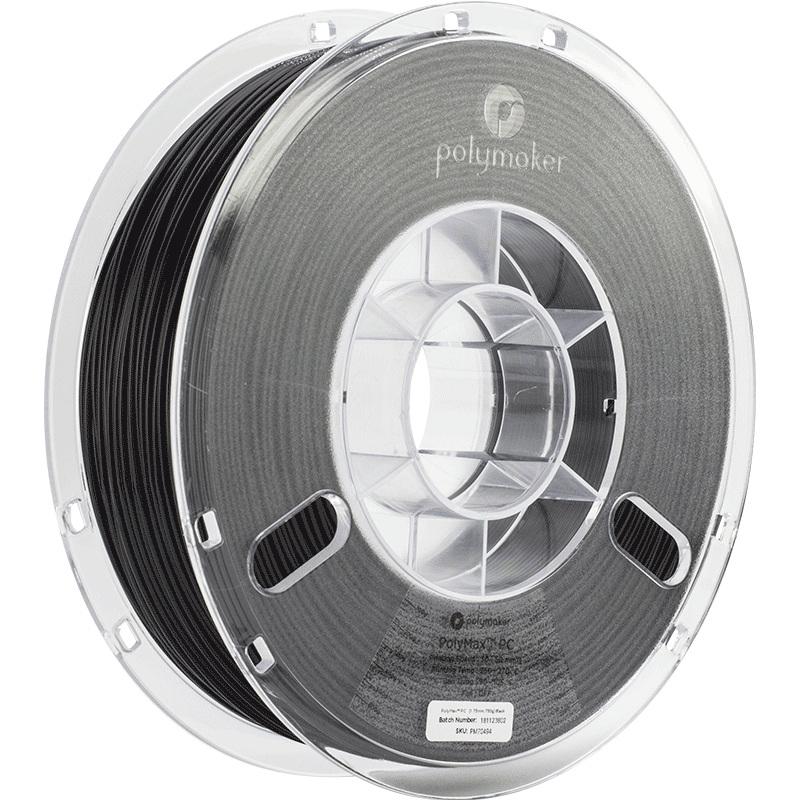
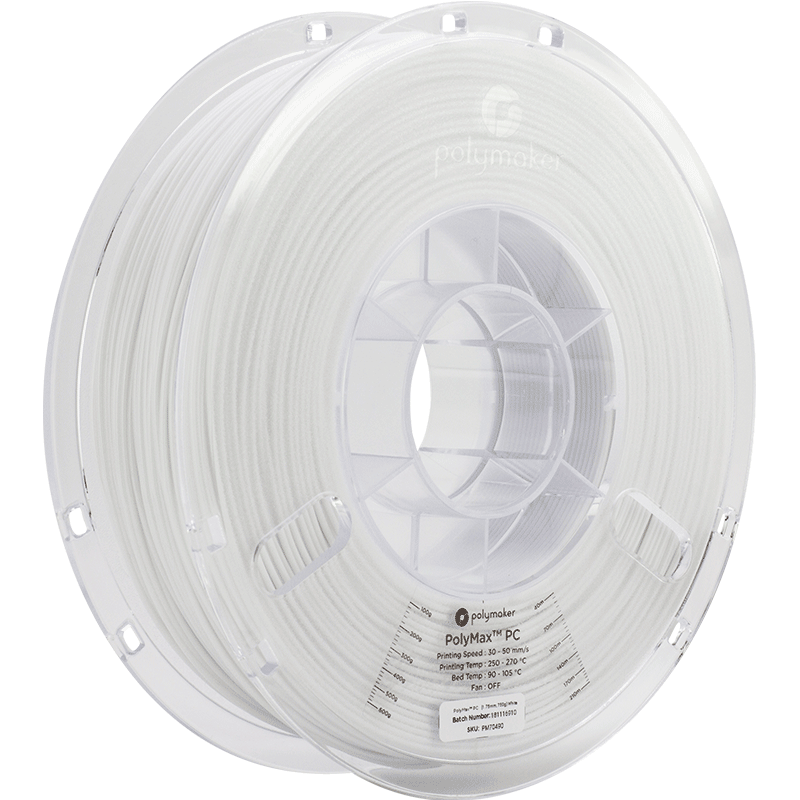
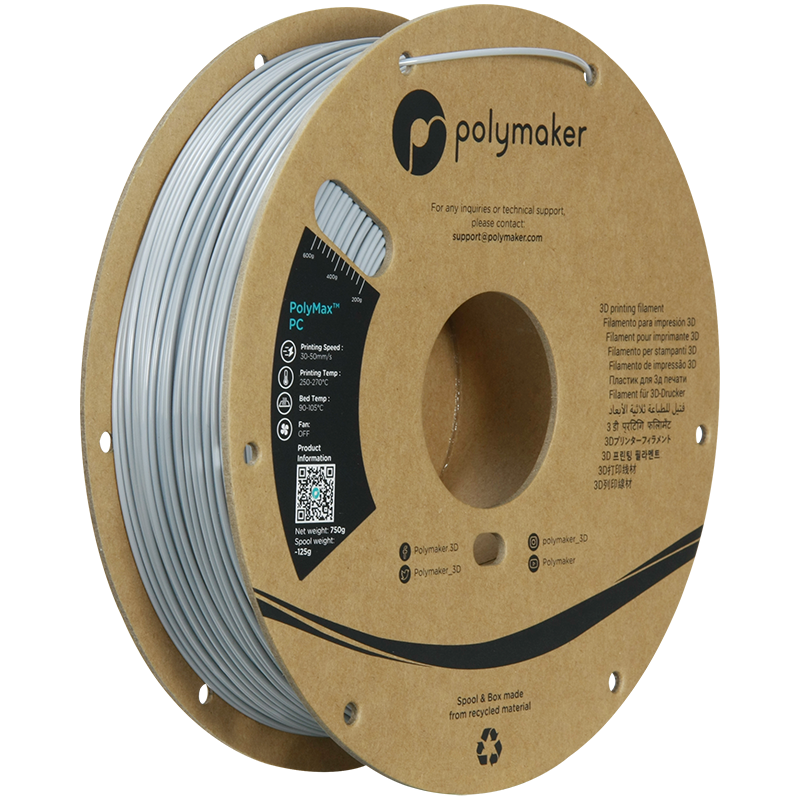
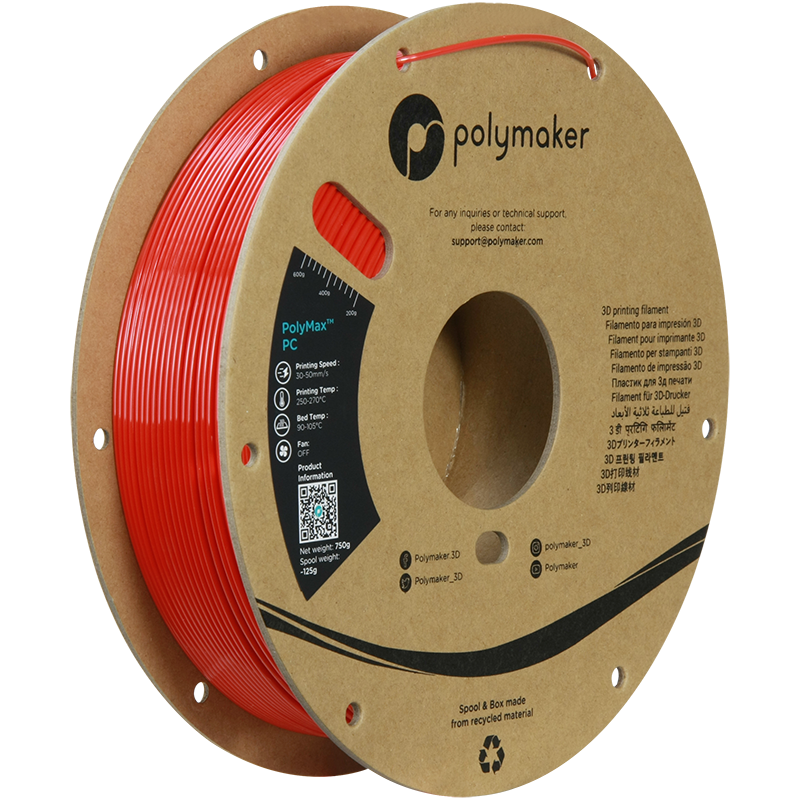
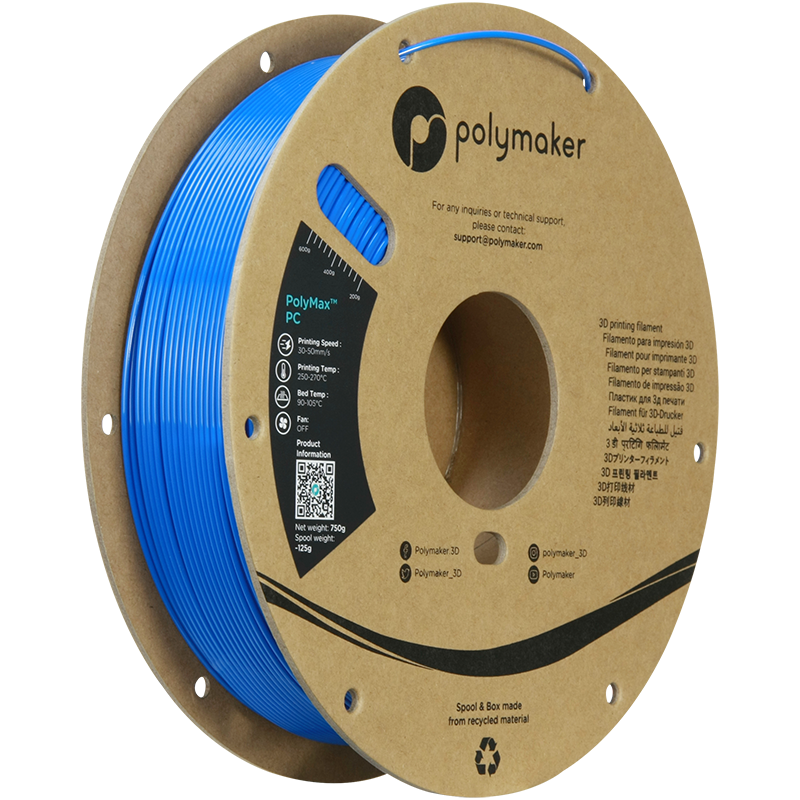
Polymaker
PolyMax PC 1.75mm
PolyMax™ PC is an engineering PC filament combining excellent strength, toughness, heat resistance and printing quality. It outperforms many other choices of PC while still printing at a relatively low printing temperature. With a softening point of 113°C it can operate in demanding environments where impact resistance, heat resistance and vibrations occur.
WHAT IS THE BEST SURFACE ADHESIVE FOR POLYMAX™ PC?
In our experience we had excellent experience with Magigoo PC. This special glue allows great adhesion when the build plate is hot and easy release when the build plate cools down.
DOES POLYMAX™ PC NEED TO BE ANNEALED?
Annealing is the process of heating up the printed parts at a certain temperature for a certain period of time. You can anneal PolyMax™ PC at 90_ for 2h.
The purpose of annealing PolyMax™ PC is to release the internal stress which accumulates during the printing process. This internal stress can creates micro cracks over time and weaken the part.
NOTE: In the case of semi-crystalline polymers such as Nylon, annealing purpose is mainly to crystalize the material for better mechanical and thermal properties)
IS THIS IMPACT RESISTANT, LIKE FOR RC CAR PARTS?
Yes, PolyMax™ PC is a toughness enhanced PC product, the charpy impact strength is 22KJ/_.
PRINTER SETTINGS:
- Nozzle temperature - 250 - 270 (°C)
- Build Surface material - BuildTak®, Glass, PEI
- Build surface treatment - Magigoo PC
- Build plate temperature - 90 - 105 (°C)
- Cooling fan Turned - Off
- Printing speed - 30 - 50 (mm/s)
- Raft separation distance - 0.2 (mm)
- Retraction distance - 1 (mm)
- Retraction speed - 20 (mm/s)
- Recommended environmental temperature - 70 – 80 (recommended) (°C)
- Threshold overhang angle - 50 (°)
- Recommended support material - PolySupport™
NOTE:
- The above settings are based on 0.4 mm nozzle and Simplify 3D v.3.1. Printing conditions may vary with different nozzle diameters.
- When printing with PolyMax™ PC it is recommended to use an enclosure. For large part it is recommended to use a heated chamber.
- It is recommended to anneal the printed part right after the printing process to release the residual internal stress.
- Annealing settings: 100°C for 2h
TECHNOLOGIES
JAM-FREE™
Jam Free technology improves the heat stability of Polymaker’s PLA filaments with softening temperatures over 140 °C. As a result, Polymaker’s PLA filaments show minimal softening in the “cold end” and can melt rapidly once entering the heating zone, leading to excellent printing quality with zero risk of nozzle jams.
WARP-FREE™
Warp-Free™ technology enables the production of Nylon-based filaments that can be 3D printed with excellent dimensional stability and near-zero warpage. This is achieved by the fine control of micro-structure and crystallization behaviour of Nylon, which enables the material to fully release the internal stress before solidification.
ASH-FREE™
Ash-Free™ technology allows Polymaker’s filament which has been designed for investment casting to burn off cleanly without any residue, enabling defect-free metal parts. 3D printing has been used to produce investment casting patterns as it cuts down both the cost and lead time for small-volume production runs.
LAYER-FREE™
Layer-Free™ technology involves exposing a 3D printed part to an aerosol of micro-sized alcohol droplets, generated by a rapidly vibrating, perforated membrane called the nebulizer. The aerosol will then be adsorbed by the surface of the 3D printed part and render it smooth and layer-free.
NANO-REINFORCEMENT
Nano-reinforcement technology is applied to produce filaments with excellent mechanical properties and printing quality. It dramatically improves the toughness of the material by increasing its impact resistance.
STABILIZED FOAMING™
Stabilized Foaming™ technology is used to produce foamed filaments, whose foam structure can survive the printing process and be inherited by the printed parts. This enables light weight 3D printed parts with unprecedented surface finish.
Together, Layer by Layer!

